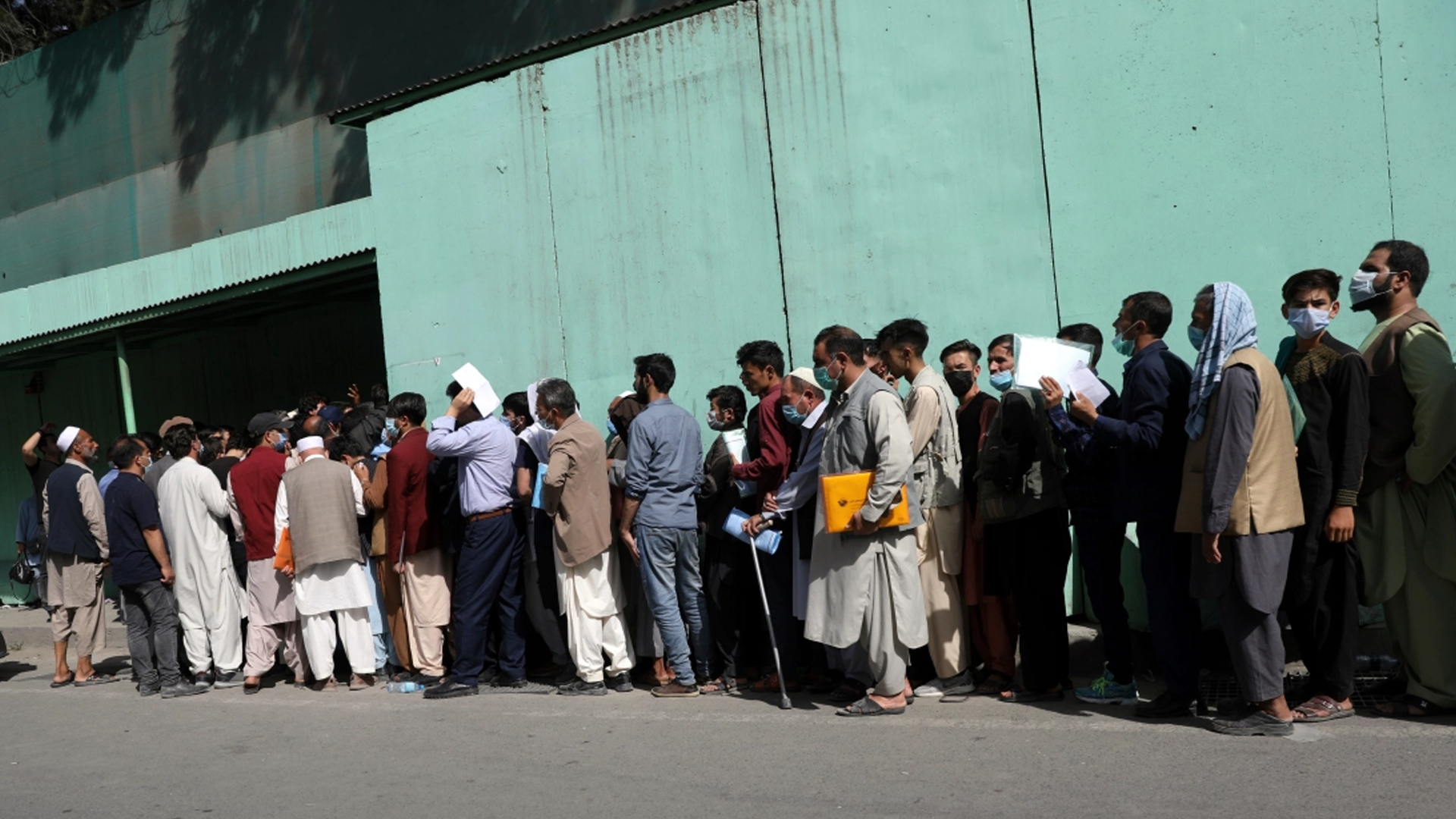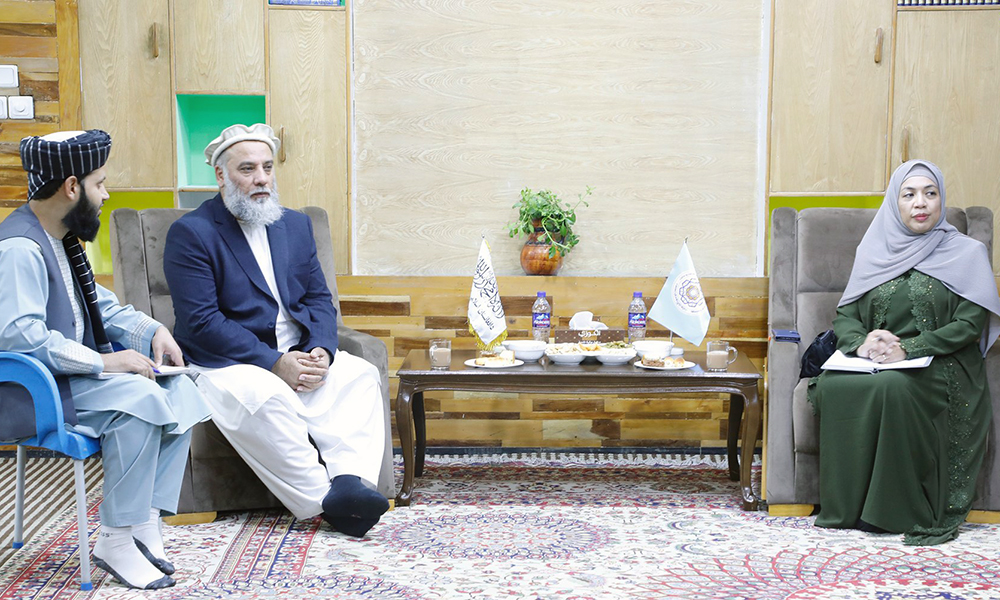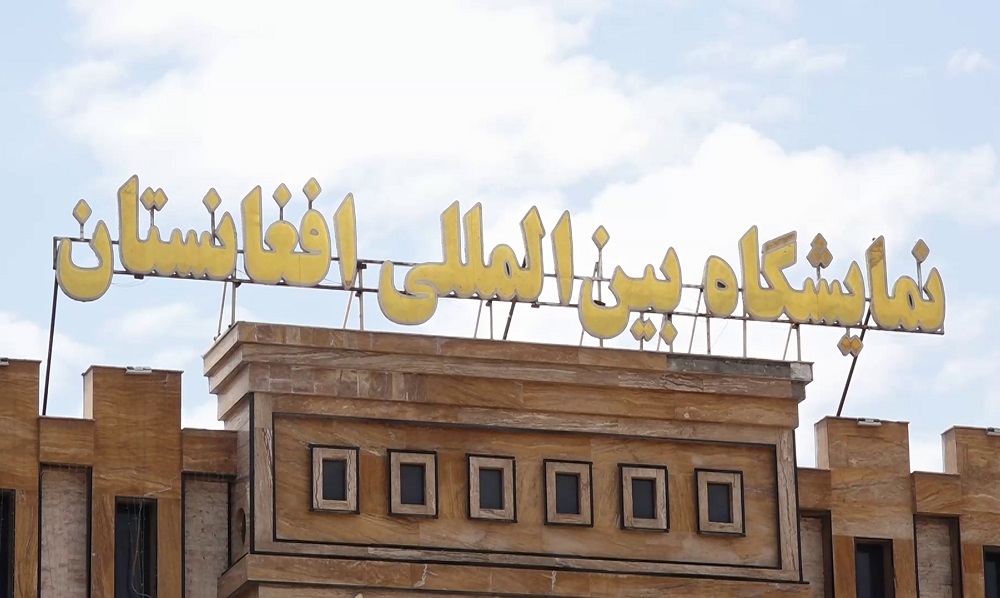Business
U.S. has no plans to release billions in Afghan assets: Reuters

The Biden administration has no plans to release billions in Afghan gold, investments and foreign currency reserves parked in the United States that it froze after the Taliban’s takeover, despite pressure from humanitarian groups and others who say the cost may be the collapse of Afghanistan’s economy.
Much of the Afghan central bank’s $10 billion in assets are parked overseas here, where they are considered a key instrument for the West to pressure the Taliban here to respect women’s rights and the rule of law.
Any unfreezing of these assets may be months away, financial experts said.
Officials from the U.S. State Department, U.S. Treasury, White House National Security Council and other agencies have been in regular discussions about Afghanistan’s finances since the Taliban took over in mid-August, ahead of what the United Nations and others see as a looming humanitarian crisis.
Any decision to release the funds would likely involve top U.S. officials from several departments but will ultimately be up to President Joe Biden, the experts said.
Food and fuel prices are soaring across Afghanistan, amid a shortage of cash triggered by a halt in foreign aid, a halt in dollar shipments and a drought.
The U.S. Treasury this week said it had granted a license here authorizing the U.S. government and its partners to continue to facilitate humanitarian aid in Afghanistan. It also gave Western Union, the world’s largest money transfer firm, and other financial institutions a green light to resume processing here personal remittances to Afghanistan from migrants overseas.
The Treasury Department is not easing sanctions on the Taliban or loosening restrictions on their access to the global financial system, a spokesperson told Reuters.
“The United States government has been in touch with humanitarian partners in Afghanistan, both regarding security conditions on the ground and about their ability to continue their humanitarian work,” the spokesperson said.
“As we maintain our commitment to the Afghan people, we have not reduced sanctions pressure on Taliban leaders or the significant restrictions on their access to the international financial system.”
Shah Mehrabi, an economics professor in Maryland and long-time member of the Afghan central bank’s board, a senior Russian official and humanitarian groups are among those urging the U.S. Treasury to also unfreeze the Afghan assets, saying that lives are at stake.
“The gravity of the situation is so immense. Every day that passes is going to result in more suffering and more exodus of people,” Mehrabi said.
The International Monetary Fund has also blocked the Taliban from accessing some $440 million in new emergency reserves, or Special Drawing Rights, issued by the global lender last month.
Adnan Mazarei, former deputy director of the IMF and now a fellow at the Peterson Institute for International Economics, said the United States could not legally release the Afghan assets until there was an internationally recognized government, and that could take many months to occur. The IMF could not act until its board voted, once a government was recognized.
He said a central bank’s reserves are typically not touched except as a last resort. Even Iran, struggling under intense international sanctions, has not used its IMF emergency reserves, he said.
Brian O’Toole, a former Treasury Department official now with the Atlantic Council, said a release of the Afghan assets would not solve Afghanistan’s considerable problems.
“Just releasing those funds doesn’t stabilize the Afghan economy, or do anything like that. What it does is give the Taliban access” to billions of dollars, he said. “I don’t think there’s gonna be a lot of appetite in the U.S. to do that, nor should there be.”
Business
Azizi calls on Malaysian investors to invest in Afghanistan

Nooruddin Azizi, Acting Minister of Commerce and Industry, met with representatives from the ministries of foreign affairs, defense and interior of Malaysia, along with other senior officials, on Wednesday and called on Malaysians to invest in Afghanistan.
The visiting delegation is being led by senior diplomat Dr. Shazelina Zainul Abidin.
According to the IEA’s foreign ministry, the two sides discussed bilateral trade, holding a business communication conference to strengthen trade relations between the two countries, the trade balance between Afghanistan and Malaysia, and creating a market for Afghan products, including carpets, cotton, and minerals.
According to the ministry, at the end of the meeting, the Acting Minister emphasized the increase of investment from regional countries in Afghanistan and called on Malaysian investors to also invest in Afghanistan.
Business
Afghanistan starts exporting via railway to Turkey

The Ministry of Interior says that Afghanistan has started exporting goods to Turkey via the Herat-Khaf railway line.
In a post on X, the ministry said: “Afghanistan’s exports to Turkey started in a calm atmosphere through the Herat-Khaf railway line.”
The ministry added that one train will run daily for a month and then two trains will run daily.
According to the ministry, the security of Khaf-Herat railway line is provided by the guards of the National Public Protection Agency.
Khaf-Herat railway project not only connects Iran and Afghanistan by rail, but also completes a 2,000-kilometer route along the east-west rail corridor from China, through Uzbekistan, to Afghanistan, to Iran, and on to Turkey and Europe.
As a landlocked country, this railway network will provide a safe route to connect with Europe via Iran’s railway network and Iran’s southern ports.
This railway line is strategic for trade between Iran and Afghanistan and will allow six million tons of goods to be sent between the two countries.
Business
Afghanistan, Kazakhstan to hold joint expo in Kabul

A joint expo between Afghanistan and Kazakhstan will be held in Kabul in the next four days, officials said on Sunday.
Officials of the Ministry of Industry and Commerce said that the two-day expo will be held for the purpose of expanding and strengthening trade relations between the two countries.
“This expo will be held as a follow-up of the Kazakh-Afghan international expo, which was held in the city of Astana, Kazakhstan, with the participation of a large delegation of the government and the private sector of the Islamic Emirate of Afghanistan,” Abdulsalam Javad Akhundzadeh, the spokesman of the Ministry of Industry and Commerce, said.
“At this expo, domestic products from different sectors of Afghanistan and the Republic of Kazakhstan will be put on display for two days.”
According to officials, 40 large Kazakh companies, and 40 large Afghan companies will exhibit their products.
Mohammad Saber Latifi, head of the Afghanistan International Expo Center, said that fruits, minerals and commercial services will be displayed at the expo.
During the expo, various memorandums of understanding for the trade of goods are also expected to be signed by companies.
-

 Latest News5 days ago
Latest News5 days agoPakistan’s frontiers minister stresses ‘dignified’ return of Afghan refugees
-

 Regional3 days ago
Regional3 days agoIranian president lands in Pakistan for three-day visit to mend ties
-

 Latest News2 days ago
Latest News2 days agoRashid Khan named AWCC’s brand ambassador
-

 Climate Change4 days ago
Climate Change4 days agoMassive river flooding expected in China, threatening millions
-

 Latest News5 days ago
Latest News5 days agoChinese keen to invest in Panjshir-Kabul water conduit project
-

 World5 days ago
World5 days agoTwo Japan navy helicopters crash, one body found, 7 missing
-

 Sport4 days ago
Sport4 days agoACL: Aino Mina 3-0 Istiqlal Kabul; Attack Energy 3-0 Khadim
-

 Sport3 days ago
Sport3 days agoKolkata beat Bengaluru by one run in IPL as Kohli fumes at dismissal
























